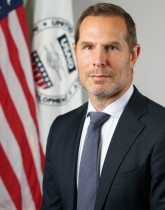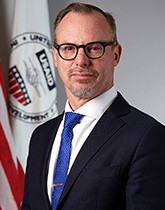- Who We Are
- Mission, Vision and Values
- Organization
- Leadership
- Office of the Administrator
- USAID at 60
- Bureaus
- Africa
- Asia
- Europe and Eurasia
- Latin America and the Caribbean
- Middle East
- Bureau for Development, Democracy, and Innovation (DDI)
- Bureau for Resilience and Food Security
- Global Health
- Legislative and Public Affairs
- Management
- Policy, Planning and Learning
- Foreign Assistance
- Bureau for Conflict Prevention and Stabilization
- Bureau for Humanitarian Assistance (BHA)
- Center of Excellence on Democracy, Human Rights and Governance
- Office Of Economic Policy
- Office of American Schools and Hospitals Abroad
- Office of Education
- Office of Energy & Infrastructure
- Office of Food for Peace
- Office of Forestry and Biodiversity
- Office of Gender Equality & Women’s Empowerment
- Office of Global Climate Change
- Office of Land and Urban
- Office of Local Sustainability
- Office of Private Capital and Microenterprise
- Office of Program, Policy, and Management
- Office of Trade & Regulatory Reform
- Office of U.S. Foreign Disaster Assistance
- Office of Water
- Independent Offices
- Mission Directory
- Advisory Committee
- Board for International Food and Agricultural Development
- Mission Directors
- Coordinators
- USAID History
- Operational Policy (ADS)
- Transparency
- Resource Portal
- The Journey to Self-Reliance
Speeches Shim
OUR MISSION: CPS seeks to create stable and peaceful societies.
The Bureau for Conflict Prevention and Stabilization (CPS) partners with USAID Missions and U.S. Embassies to contribute to peace and stability through programs, funding, and technical services focusing on social, communal, and political aspects of crises and political transition. CPS is USAID’s dedicated team for technical and analytical expertise on peacebuilding, conflict, and violence prevention. CPS responds to complex crises and opportunities to support countries on the road to self-reliance.
Advise
The CPS Bureau provides expert advice and services addressing conflict, communal violence, political transitions, stabilization, and extremism. CPS also coordinates civilian-military policy to inform and support U.S. foreign- and national-security policy priorities.
Design
CPS experts help develop tools and mechanisms enhancing USAID's implementation of foreign-assistance programs in response to emerging threats, conflicts, and political transitions and supports positive momentum.
Deliver
CPS is field-driven and provides integrated technical assistance and services to USAID Missions and U.S. Embassies, in addition to implementing rapid-response programs. CPS builds the capacity of local organizations and governments to preserve and expand democratic and peaceful space in complex political environments.
CPS provides advice and policy support to the Relief, Response, and Resilience (R3) Associate Administrator, USAID leadership, regional bureaus, overseas Missions, and the U.S. Government interagency.
CPS has five offices headquartered in Washington, D.C.

The Office of Administrative Management Services (AMS)
Oversees, coordinates, and supports administrative and financial operations; advises on Bureau staffing; and develops administrative policies and procedures.
The Office of Civilian-Military Cooperation (CMC)
Serves as USAID’s primary point of contact with the Department of Defense (DoD), and leverages the unique capabilities of USAID and DoD to achieve better development outcomes in pursuit of U.S. national security goals and national values.
The Center for Conflict and Violence Prevention (CVP)
Strengthens USAID’s capacity and CVP commitment to resolve conflict and prevent violence. The Center analyzes sources of conflict and fragility, and assists Missions through program interventions, as well as by integrating conflict-sensitive approaches into their programs and activities.
The Office of Transition Initiatives (OTI)
Supports U.S. foreign policy by seizing emerging windows of opportunity in the political landscape to promote stability, peace, and democracy by catalyzing local initiatives through adaptive and agile programming.
The Program Office (PO)
Manages bureau-level planning, programming, budgeting, policy coordination, communication, and reporting.
Responsive and Agile Support
CPS deploys agile funding to respond to crises and political transitions:
- The Transition Initiatives (TI) enables rapid programming to take advantage of new opportunities to support political transitions and address conflict.
- The Complex Crises Fund (CCF) enables timely investments to catalyze peace and mitigate conflict in advance or in the face of unforeseen crises or violence.
- The People-to-People Reconciliation Fund (P2P) brings together conflict-affected groups to peacefully interact in order to address divisions that prevent a country’s ability to manage conflict.
- The U.S. Strategy on Women, Peace, and Security (WPS) advances women’s meaningful participation in preventing and resolving conflict, countering violent extremism, and building post-conflict peace and stability. USAID invests in women's leadership and empowerment to help break cycles of conflict and crisis.
Find out more about where CPS Engages.



Comment
Make a general inquiry or suggest an improvement.